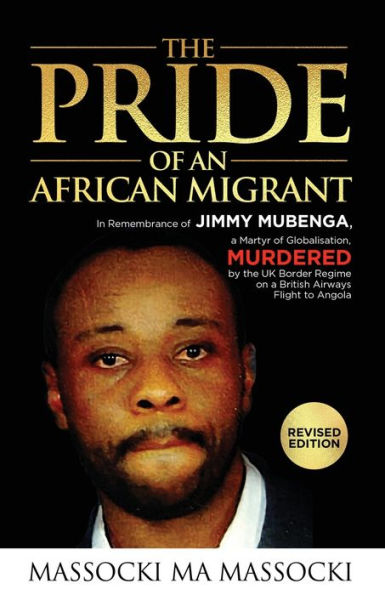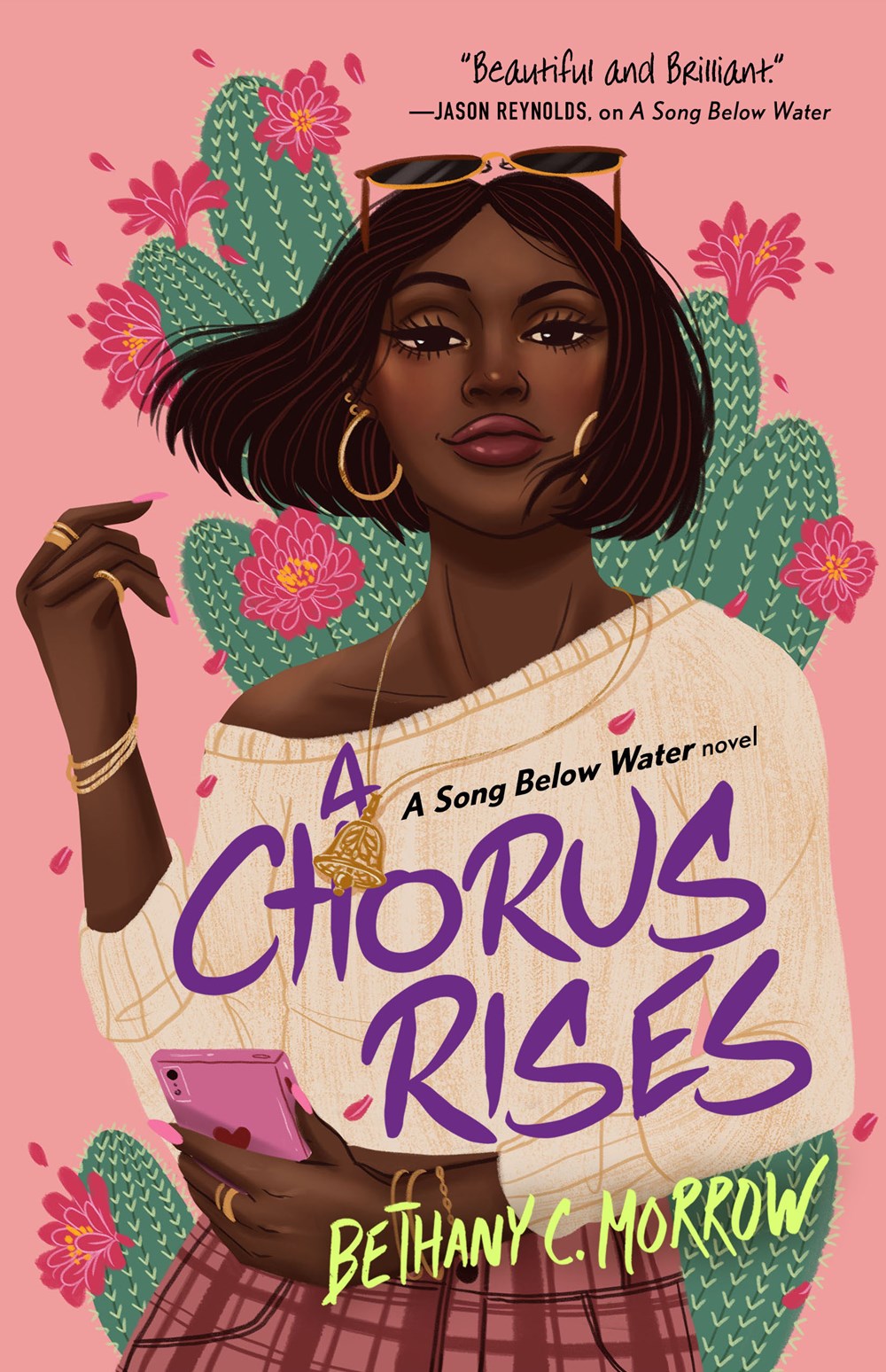
A Chorus Rises: A Song Below Water Novel by Bethany C. Morrow
A Chorus Rises: A Song Below Water Novel by Bethany C. Morrow
Teen & Young Adult Fiction | Reading age: 13 – 18 years
A Chorus Rises is a timely confrontation of the evolving nature of popularity in a society that chooses “exceptions” and rewards “model minorities.”
Meet Naema Bradshaw: a beautiful Eloko, once Portland-famous, now infamous, as she navigates a personal and public reckoning where confronting the limits of her privilege will show Naema what her magic really is, and who it makes her.
Teen influencer Naema Bradshaw has it all: she’s famous, stylish, gorgeous–and she’s an Eloko, a charismatic person gifted with a melody that people adore. Everyone loves her–until she’s cast as the villain who exposed a Siren to the whole world.
Dragged by the media, and canceled by her fans, no one understands her side: not her boyfriend, not her friends, not even her fellow Eloko. Villified by those closest to her, Naema heads to the Southwest where she is determined to stage a comeback… to her family, her real self, and the truth about her magic. What she finds is a new community in a flourishing group of online fans who support her.
At first, it feels like it used to–the fandom, the adoration, the community that takes her side–but when her online advocates start targeting other Black girls, Naema will realize that–for Black girls like her–even the privilege of fame has its limits. And only Naema can discover the true purpose of her power, and how to use it.
“A watery and melodic crossroads of the real and the mythic, A Chorus Rises lures readers with its seductive and beautifully Black siren song. An enthralling tale of Black girl magic and searing social commentary ready to rattle the bones.” ―Dhonielle Clayton, New York Times bestselling author of The Belles series
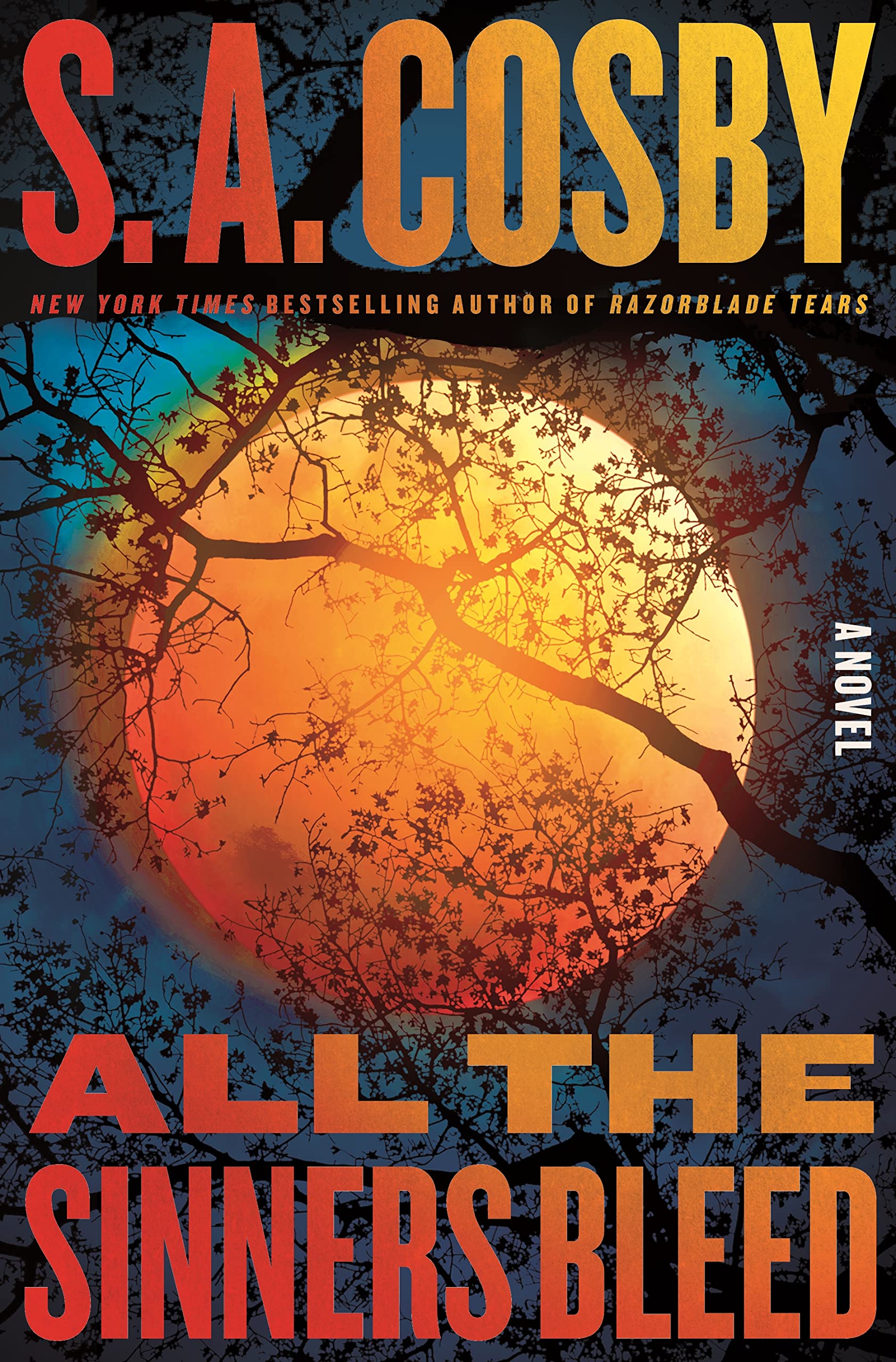
All the Sinners Bleed: A Novel by S. A. Cosby
The new novel from New York Times bestselling and Los Angeles Times Book Prize-winning author S. A. Cosby, one of the most muscular, distinctive, grab-you-by-both-ears voices in American crime fiction.” —Washington Post.
After years of working as an FBI agent, Titus Crown returns home to Charon County, land of moonshine and cornbread, fist fights and honeysuckle. Seeing his hometown struggling with a bigoted police force inspires him to run for sheriff. He wins, and becomes the first Black sheriff in the history of the county.
Then a year to the day after his election, a young Black man is fatally shot by Titus’s deputies.
Titus pledges to follow the truth wherever it leads. But no one expected he would unearth a serial killer who has been hiding in plain sight, haunting the dirt lanes and woodland clearings of Charon.
Now, Titus must pull off the impossible: stay true to his instincts, prevent outright panic, and investigate a shocking crime in a small town where everyone knows everyone yet secrets flourish. All while also breaking up backroads bar fights and being forced to protect racist Confederate pride marchers.
For a Black man wearing a police uniform in the American South, that’s no easy feat. But Charon is Titus’s home and his heart, and he won’t let the darkness overtake it. Even as it threatens to consume him…
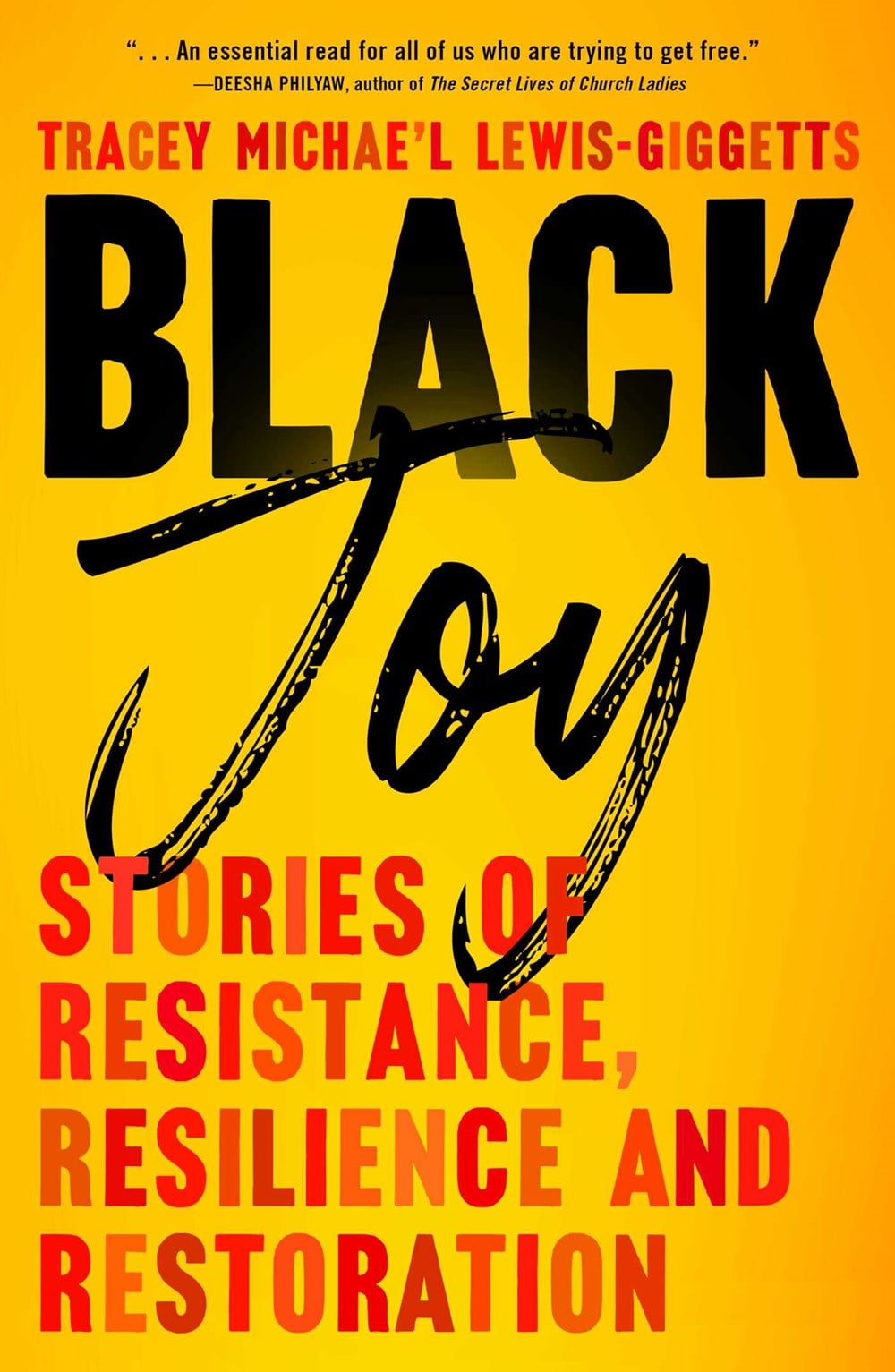
Black Joy by Tracey Michae’l Lewis-Giggetts
Black Joy: Stories of Resistance, Resilience, and Restoration by Tracey Michae’l Lewis-Giggetts
With deeply personal and uplifting essays in the vein of Black Girls Rock, You Are Your Best Thing, and I Really Needed This Today, this is “a necessary testimony on the magic and beauty of our capacity to live and love fully and out loud” (Kerry Washington).
When Tracey M. Lewis-Giggetts wrote an essay on Black joy for The Washington Post, she had no idea just how deeply it would resonate. But the outpouring of positive responses affirmed her own lived experience: that Black joy is not just a weapon of resistance, it is a tool for resilience.
With this book, Tracey aims to gift her community with a collection of lyrical essays about the way joy has evolved, even in the midst of trauma, in her own life. Detailing these instances of joy in the context of Black culture allows us to recognize the power of Black joy as a resource to draw upon, and to challenge the one-note narratives of Black life as solely comprised of trauma and hardship.
“Lewis-Giggetts etches a stunning personal map that follows in her ancestors’ footsteps and highlights their ability to take control of situational heartbreak and tragedy and make something better out of it….A simultaneously gorgeous and heartbreaking read” (Kirkus Reviews, starred review).
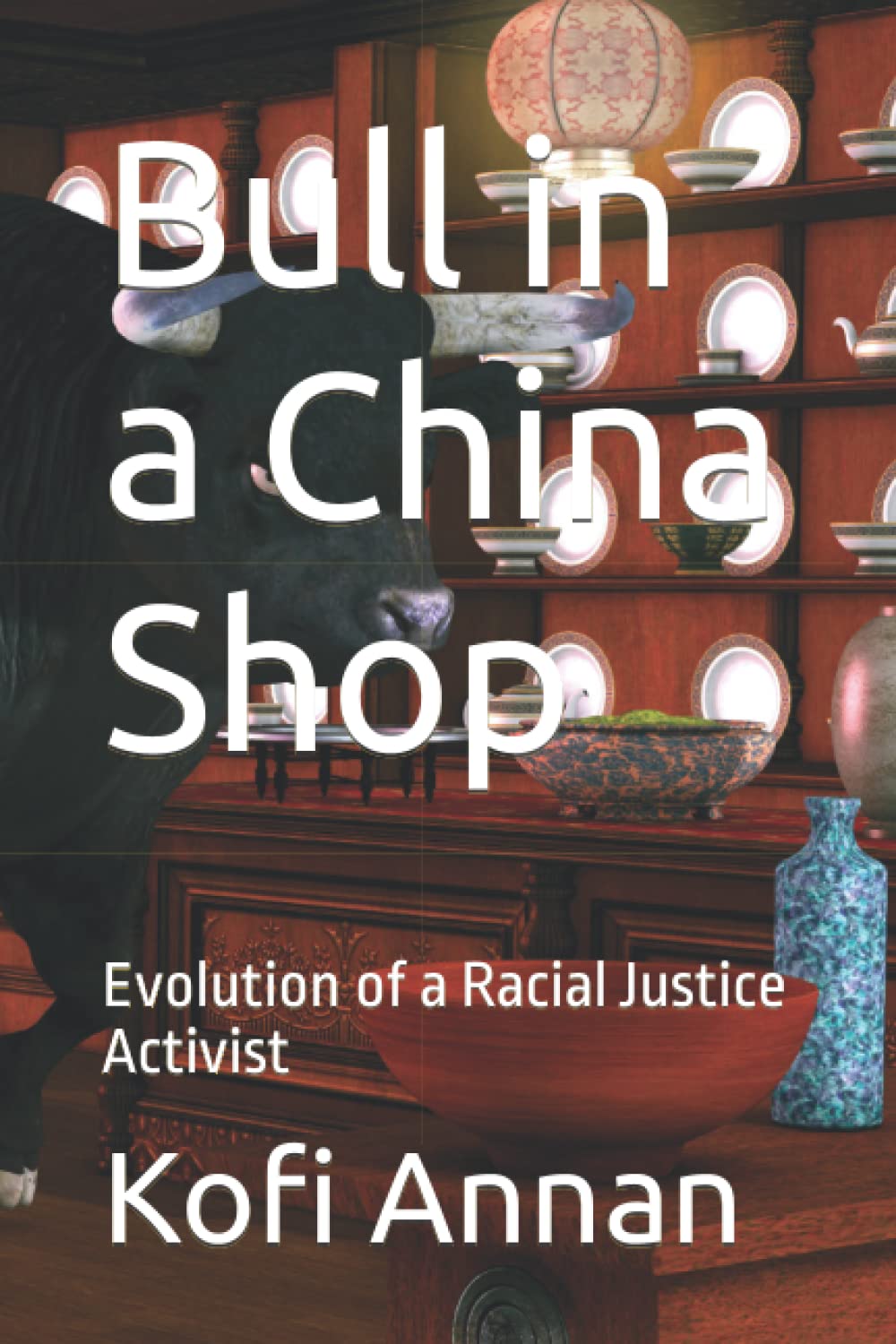
Bull in a China Shop: Evolution of a Racial Justice Activist by Kofi Annan
Bull in a China Shop is a memoir by Kofi Annan, an immigrant from the Caribbean who despite having little foreknowledge of the inner workings of American politics, successfully challenged the inertia of the established political systems to generate positive changes for his community. His relative ignorance about how things “should” be done was a double-edged sword.
Kofi quickly became president of a local branch of the National Association for the Advancement of Colored People (NAACP) and sketched out an approach that led the branch to be recognized as the best in the nation. But on the path to doing so, he created enemies within the established Democratic Party and fellow NAACP members and learned some difficult lessons.
This memoir chronicles how Kofi’s life experiences growing up in the Caribbean, coming of age in Washington, DC during the crack cocaine epidemic, and professional experience in the United States Army and Intelligence Community shaped his perspective and approach to the civil rights fight.
The memoir can serve as an educational tool for seasoned civil rights activists who wish to become more effective, and a motivational tool for those not yet involved in the fight but have the desire to engage.
Bull in a China Shop: Evolution of a Racial Justice Activist by Kofi Annan is available on Amazon.
Connect with Kofi Annan
Kofi Annan is the author of the award-winning book, Bull in a China Shop: Evolution of a Racial Justice Activist, and Leadership in Action: 5 Key Principles of Effective Racial Justice Work. He and his wife founded Fighting Words LLC, a racial justice and DEI Consulting Company in 2023. He is the former president of The Activated People (TAP), an independent activist organization dedicated to promoting racial equity.
Kofi previously served two terms as the president of the Fairfax County, Virginia National Association for the Advancement of Colored People (NAACP), which was awarded the NAACP’s Thalheimer Award for being the best branch in the country in 2018.
Kofi is also the owner of Soul Rebel, a food truck based in northern Virginia that serves a unique blend of Caribbean-American fusion cuisine.
Kofi Annan served eight years in the U.S. Army, and holds a Master’s of Science in International Relations from Troy University, and a Bachelor of Science in Criminal Justice with a minor in Psychology from Tennessee State University.
Website: https://42fightingwords.com/books-1
Instagram: https://www.instagram.com/1942fightingwords/
Facebook: https://www.facebook.com/profile.php?id=100084925573429
LinkedIn: https://www.linkedin.com/company/fighting-words-llc/?viewAsMember=true
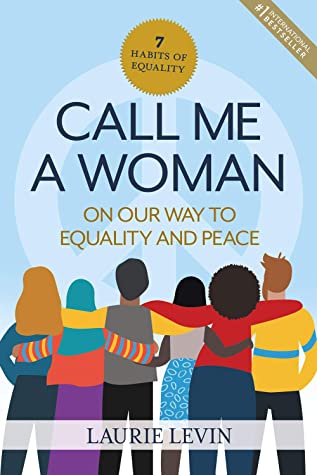
Call Me a Woman: On Our Way to Equality and Peace by Laurie Levin
It’s time to raise the bar. There are more months in the year than countries in the world where women and men have equal rights. This imbalance is the cause of the most pressing challenges we face today.
Angry about sexism and misogyny and what you personally have endured? Afraid the world won’t get its act together in time to save itself?
Call Me A Woman combines Laurie Levin’s personal story, including multiple sexual assaults, years of research, personal interviews, global studies, and activism to ramp up awareness and change perceptions of how we view what happens to girls and women world-wide.
Equality can become our reality when each of us comes to terms with how we uphold inequality. The long-standing domination of men over women is reflected in our language, traditions, choices, votes, and what we do and don’t pay attention to.
Call Me A Woman is a call to action and roadmap that will speed our way to gender equality and a more peaceful world.
After all, women are half of every race, religion, ethnic group, economic class, and nation.
Become part of the solution and create a safer and more just world for girls and women. When women rise, we take the world with us.
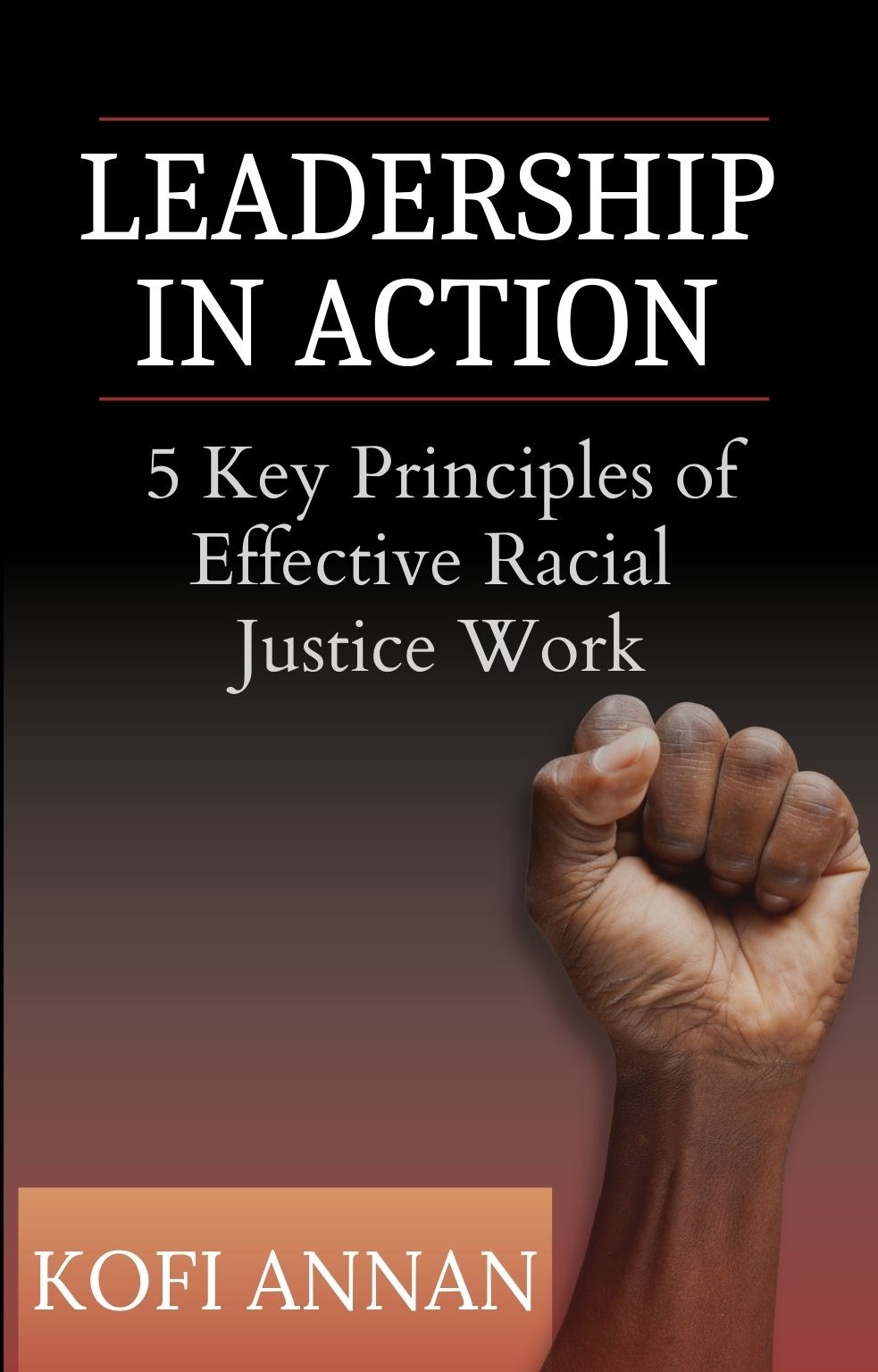
Leadership in Action: 5 Key Principles of Effective Racial Justice Work by Kofi Annan
As painful and upsetting as George Floyd’s murder was, it was encouraging to witness not just the intense condemnation–and ultimate prosecution–of the officers involved, but the almost universal recognition that that incident was a mere symptom of a greater problem, systemic racism.
In the subsequent months, more resources and energy were invested into efforts to fight systemic racism than ever before. America experienced the largest and longest-running protests in its history, and corporate America pledged over $200 billion to racial justice initiatives.
Unfortunately, according to research conducted by Forbs Magazine, as of late 2022 the majority of that money either went unspent while the rest was spent on efforts that had little systemic impact. The problem is that even individuals and organizations that have the best of intentions are clueless about how to craft an effective strategy to conduct racial justice activism. This work can be daunting, and even seasoned veterans can become overwhelmed or burned out.
In this book, Kofi Annan, a nationally recognized racial justice activist, and award-winning author lays out his five key guiding principles for conducting efficient and effective racial justice work. The guide serves as a tool for individuals, corporations, or non-profit organizations whose heart is in the right place but could use help crafting a strategy.
Connect with Kofi Annan
Kofi Annan is the author of the award-winning book, Bull in a China Shop: Evolution of a Racial Justice Activist, and Leadership in Action: 5 Key Principles of Effective Racial Justice Work. He and his wife founded Fighting Words LLC, a racial justice and DEI Consulting Company in 2023. He is the former president of The Activated People (TAP), an independent activist organization dedicated to promoting racial equity.
Kofi previously served two terms as the president of the Fairfax County, Virginia National Association for the Advancement of Colored People (NAACP), which was awarded the NAACP’s Thalheimer Award for being the best branch in the country in 2018.
Kofi is also the owner of Soul Rebel, a food truck based in northern Virginia that serves a unique blend of Caribbean-American fusion cuisine.
Kofi Annan served eight years in the U.S. Army and holds a Master’s of Science in International Relations from Troy University, and a Bachelor of Science in Criminal Justice with a minor in Psychology from Tennessee State University.
Website: https://42fightingwords.com/books-1
Instagram: https://www.instagram.com/1942fightingwords/
Facebook: https://www.facebook.com/profile.php?id=100084925573429
LinkedIn: https://www.linkedin.com/company/fighting-words-llc/?viewAsMember=true

Sankofa: A Novel by Chibundu Onuzo
Named a Best Book of the Month by Entertainment Weekly, Harper’s Bazaar, and Time • Named a Most Anticipated Book of the Month by Goodreads, PopSugar, PureWow, LitHub, Minneapolis Star-Tribune, and Buzzfeed
A woman wondering who she really is goes in search of a father she never knew—only to find something far more complicated than she ever expected—in this “stirring narrative about family, our capacity to change and the need to belong” (Time).
Anna is at a stage of her life when she’s beginning to wonder who she really is. In her 40s, she has separated from her husband, her daughter is all grown up, and her mother—the only parent who raised her—is dead.
Searching through her mother’s belongings one day, Anna finds clues about the African father she never knew. His student diaries chronicle his involvement in radical politics in 1970s London. Anna discovers that he eventually became the president—some would say dictator—of a small nation in West Africa. And he is still alive…
When Anna decides to track her father down, a journey begins that is disarmingly moving, funny, and fascinating. Like the metaphorical bird that gives the novel its name, Sankofa expresses the importance of reaching back to knowledge gained in the past and bringing it into the present to address universal questions of race and belonging, the overseas experience for the African diaspora, and the search for a family’s hidden roots.
Examining freedom, prejudice, and personal and public inheritance, Sankofa is a story for anyone who has ever gone looking for a clear identity or home, and found something more complex in its place.
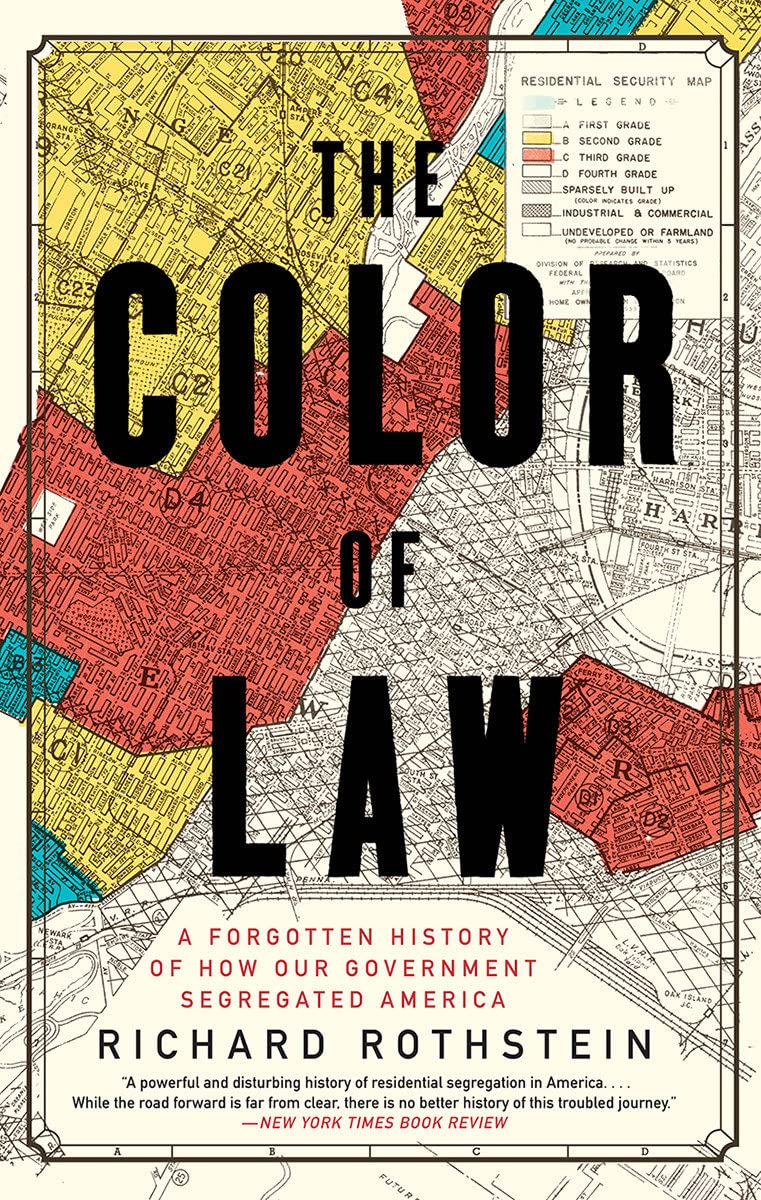
The Color of Law by Richard Rothstein
The Color of Law: A Forgotten History of How Our Government Segregated America by Richard Rothstein
This “powerful and disturbing history” exposes how American governments deliberately imposed racial segregation on metropolitan areas nationwide (New York Times Book Review).
Widely heralded as a “masterful” (Washington Post) and “essential” (Slate) history of the modern American metropolis, Richard Rothstein’s The Color of Law offers “the most forceful argument ever published on how federal, state, and local governments gave rise to and reinforced neighborhood segregation” (William Julius Wilson).
Exploding the myth of de facto segregation arising from private prejudice or the unintended consequences of economic forces, Rothstein describes how the American government systematically imposed residential segregation: with undisguised racial zoning; public housing that purposefully segregated previously mixed communities; subsidies for builders to create whites-only suburbs; tax exemptions for institutions that enforced segregation; and support for violent resistance to African Americans in white neighborhoods.
A groundbreaking, “virtually indispensable” study that has already transformed our understanding of twentieth-century urban history (Chicago Daily Observer), The Color of Law forces us to face the obligation to remedy our unconstitutional past.
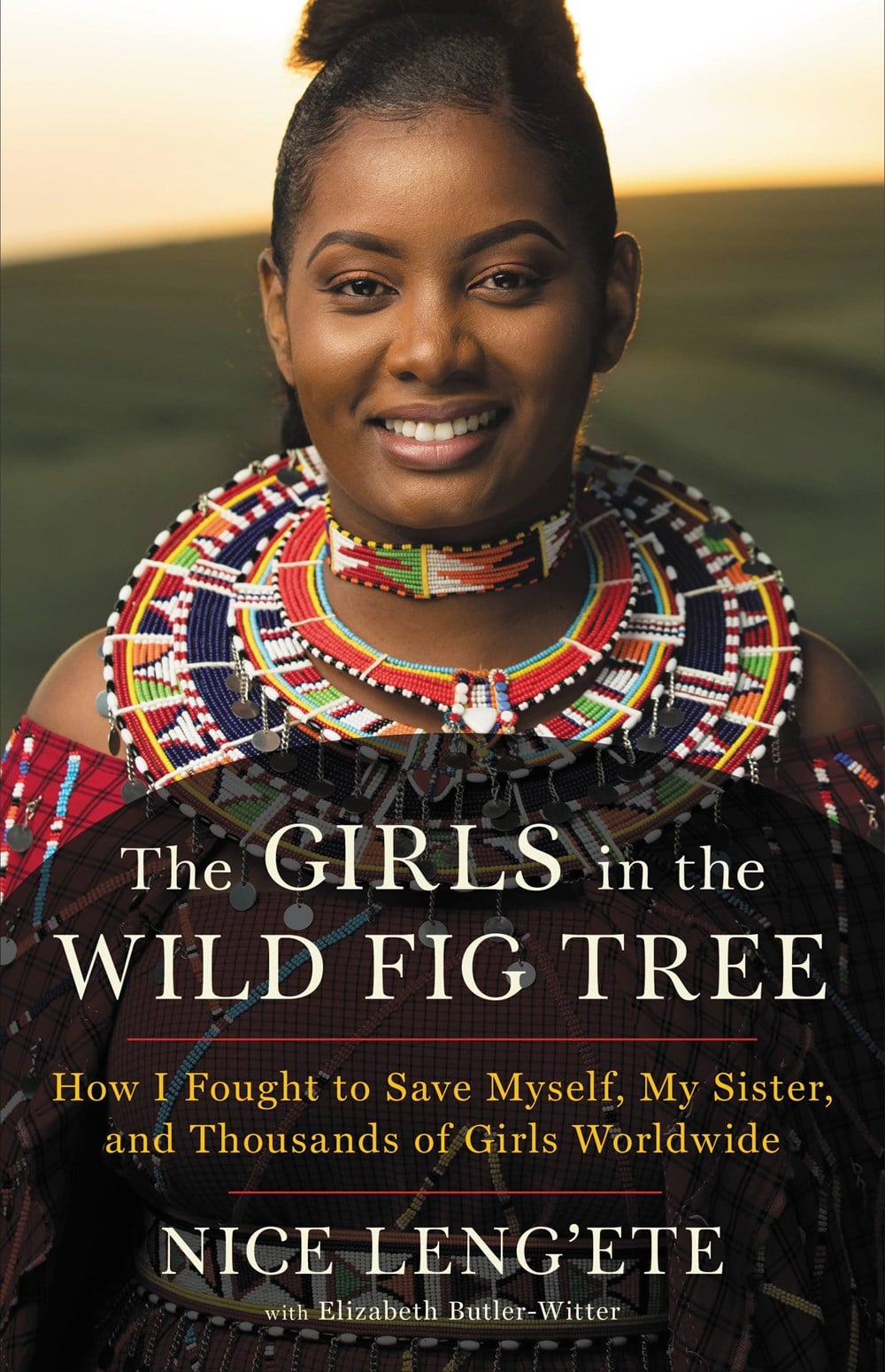
The Girls in the Wild Fig Tree by Nice Leng’ete
An “elegant and inspiring memoir” by the human rights activist who changed the minds of her elders, reformed traditions from the inside, and is creating a better future for girls and women throughout Africa (Sonia Faleiro, New York Times).
Nice Leng`ete was raised in a Maasai village in Kenya. In 1998, when Nice was six, her parents fell sick and died, and Nice and her sister Soila were taken in by their father’s brother, who had little interest in the girls beyond what their dowries might fetch. Fearing “the cut” (female genital mutilation, a painful and sometimes deadly ritualistic surgery), which was the fate of all Maasai women, Nice and Soila climbed a tree to hide.
Nice hoped to find a way to avoid the cut forever, but Soila understood it would be impossible. But maybe if one of the sisters submitted, the other would be spared. After Soila chose to undergo the surgery, sacrificing herself to save Nice, their lives diverged. Soila married, dropped out of school, and had children–all in her teenage years–while Nice postponed receiving the cut, continued her education, and became the first in her family to attend college.
Supported by Amref, Nice used visits home to set an example for what an uncut Maasai woman can achieve. Other women listened, and the elders finally saw the value of intact, educated girls as the way of the future. The village has since ended FGM entirely, and Nice continues the fight to end FGM throughout Africa, and the world.
Nice’s journey from “heartbroken child and community outcast, to leader of the Maasai” is an inspiration and a reminder that one person can change the world–and every girl is worth saving.
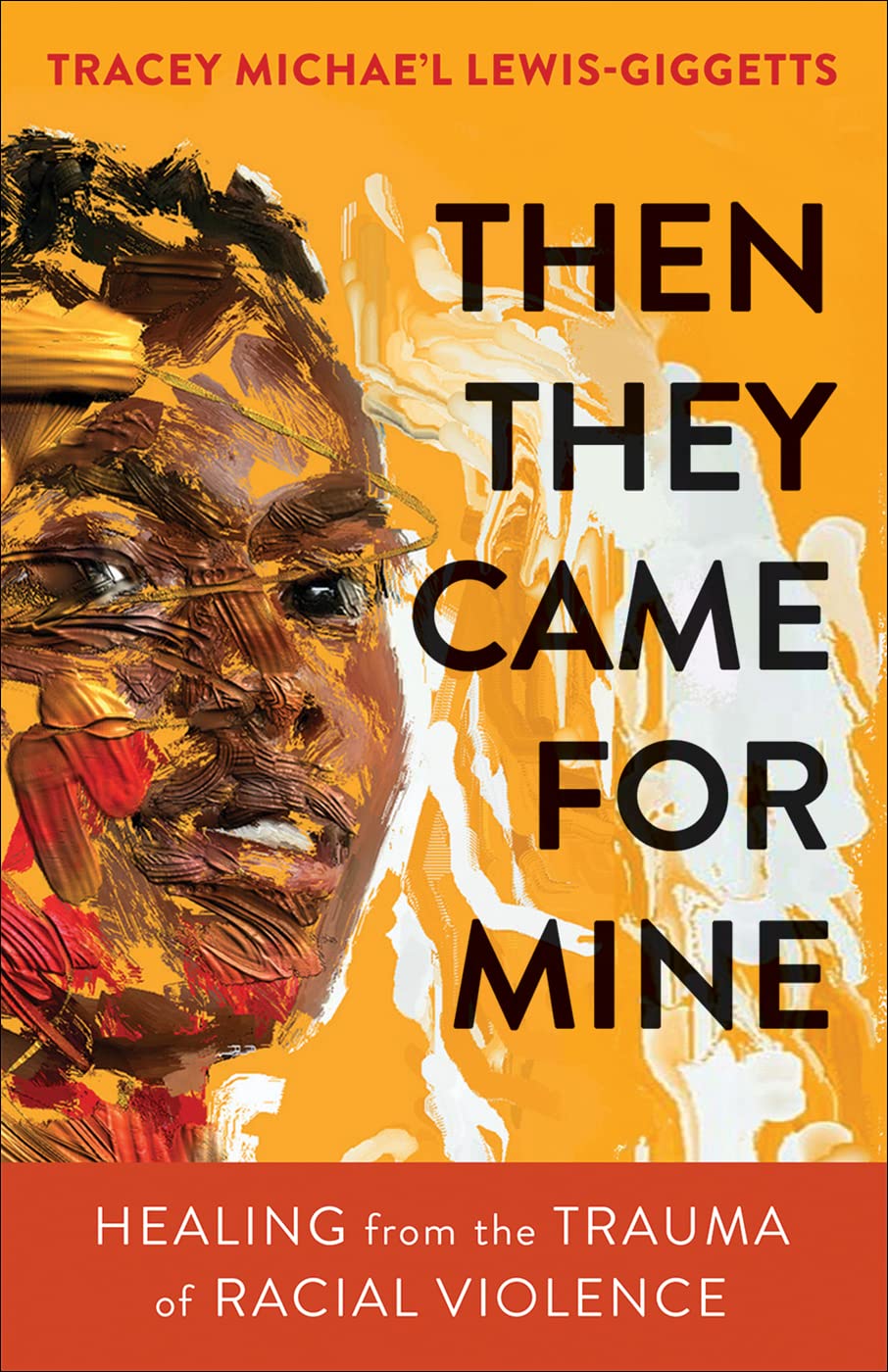
Then They Came for Mine by Tracey Michae’l Lewis-Giggetts
Then They Came for Mine: Healing from the Trauma of Racial Violence by Tracey Michae’l Lewis-Giggetts
Black Americans’ resilience during centuries of racially-motivated violence is beyond remarkable. But continuing to endure this harm allows for generations of trauma to fester and grow. Healing has to be the priority going forward.
For decades, Tracey Michae’l Lewis-Giggetts clung to her upbringing in the church, believing that racial reconciliation would come through faith and discipline, being respectable, and doing what’s right. But when her cousin became the victim of a white supremacist’s hateful rampage, her body and soul said, “no more.”
The trauma of America’s racial history, wreaking havoc on not only Black and Brown folk but white people too, in its own way, will not be alleviated without the will to face it head-on. We must name the dehumanization that plagues us, practice truth-telling and self-care, and make space for our vulnerability–to do the hard work of healing ourselves and our communities.
This book is written with that healing in mind. It unpacks how American systems and institutions enable the kind of violence we’ve seen connected to white supremacy and nationalism. It examines the way media has created a desensitization to violence against Black bodies.
It outlines what it looks like for a person who claims to follow Jesus to be anti-racist. But more than anything, it offers a blueprint for healing and reconciliation that includes the necessity of white people untangling from an ancestral mandate of colonization and false notions of supremacy, and Black and Brown people reckoning with the impact of trauma and feeling free to grieve in whatever way grief shows up.
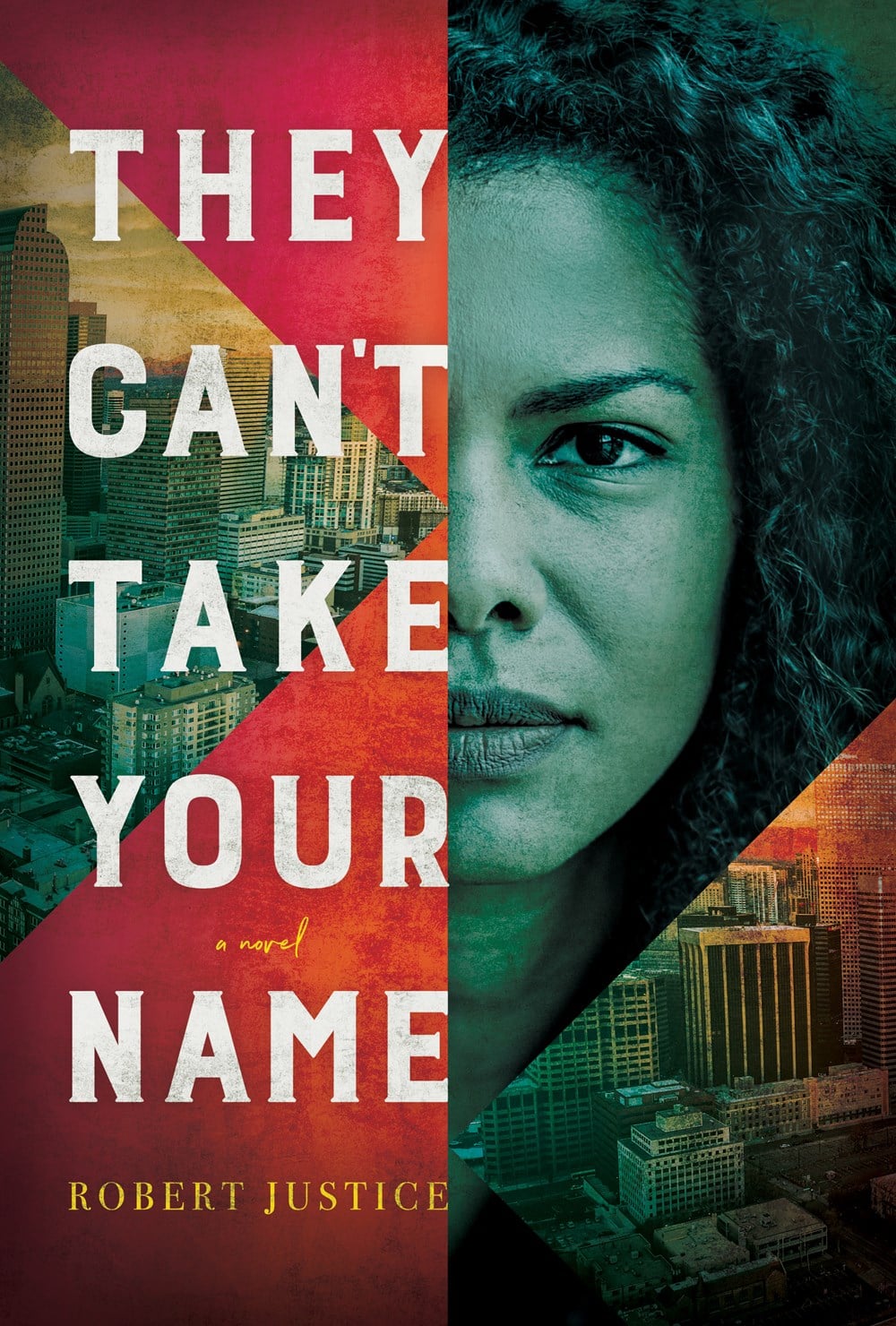
They Can’t Take Your Name: A Novel by Robert Justice
Laced with atmospheric poetry and literature and set in the heart of Denver’s black community, this gripping crime novel pits three characters in a race against time to thwart a gross miscarriage of justice—and a crooked detective who wreaks havoc…with deadly consequences.
What happens to a deferred dream—especially when an innocent man’s life hangs in the balance? Langston Brown is running out of time and options for clearing his name and escaping death row.
Wrongfully convicted of the gruesome Mother’s Day Massacre, he prepares to face his death. His final hope for salvation lies with his daughter, Liza, an artist who dreamed of a life of music and song but left the prestigious Juilliard School to pursue a law degree with the intention of clearing her father’s name. Just as she nears success, it’s announced that Langston will be put to death in thirty days.
In a desperate bid to find freedom for her father, Liza enlists the help of Eli Stone, a jazz club owner she met at the classic Five Points venue, The Roz. Devastated by the tragic loss of his wife, Eli is trying to find solace by reviving the club…while also wrestling with the longing to join her in death.
Everyone has a dream that might come true—but as the dark shadows of the past converge, could Langston, Eli, and Liza be facing a danger that could shatter those dreams forever?









